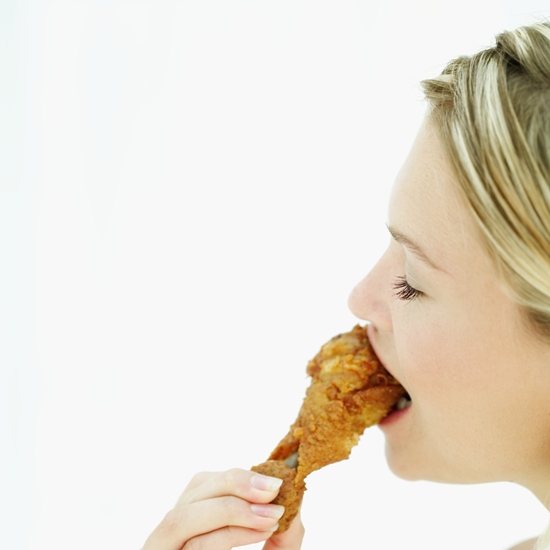 Here’s a simple trick that could help you lose weight. It’s something your mother likely told you to do when you were a kid and for good reason. Chewing your food not only helps to activate digestive enzymes, but it also encourages you to eat less.
Here’s a simple trick that could help you lose weight. It’s something your mother likely told you to do when you were a kid and for good reason. Chewing your food not only helps to activate digestive enzymes, but it also encourages you to eat less.
Researchers have previously noted a positive relationship between eating slowly and reducing weight. Those who take their time when having a meal tend to be slimmer overall than those who eat quickly. What researchers didn’t know, however, was how much the act of chewing aided in triggering any weight loss.
To find out if chewing more could change the amount of food a person ate in a positive way (i.e. eating less food), researchers conducted a study. If eating slowly helps to lower the risk for obesity, the researchers reasoned, then chewing thoroughly should also be an effective way to reduce the speed of eating and the risk for weight gain. No studies have yet demonstrated the relationship between eating behaviors and caloric intake.
The researchers set out to investigate the effect of an increased chewing rate on meal size. They measured the number of chews before swallowing in 45-year-old participants. Weight ranges of the participants varied from normal, to overweight, to obese. Unlike a lot of clinical trials, this one must have been fun for those who took part. They were asked to attend three sessions in which they were required to eat pizza for lunch. The only caveat? They had to chew each bite of pizza at a rate of 100%, 150%, or 200% higher than their normal rate of chewing (which was measured and recorded at baseline). At each meal, they were asked to stop when they felt “comfortably full.”
The researchers measured body weight, food intake, meal duration, eating rate, and appetite at the end of the three meals. The researchers found that food intake was significantly reduced when the participants were chewing at 150% and 200% of their normal rate. The amount of food the participants ate was reduced by 9.5% and 14.8%, respectively, compared with the 100% session.
Increasing the amount the participants chewed also helped each meal to last longer and reduced their eating rate. The researchers concluded by saying that boosting the number of chews you take before swallowing food could be a simple and effective way to reduce food intake and potentially lower body weight.
Chewing more will help you enjoy the different tastes that accompany each bite. These tastes might be associated with spices, healthy fats like olive oil, the pleasing tanginess of tomato sauce, or the saltiness of cheese. Medical experts estimate that it takes about 20 minutes for your brain to signal to your stomach that you’re full.
As an aside to this study, another team of researchers has made an interesting discovery about chewing gum. They found that it can promote recovery in people who have just undergone colorectal surgery. Almost 500 patients were divided into two groups: one chewed gum while the other acted as control. The gum-chewing group scored higher on digestive markers such as the regularity of bowel movements and reduced discomfort caused by bloating. This group even experienced shorter stays in the hospital compared to the control group.
Sources:
Jegtvig, S., “Chew more, eat less? It could work, study suggests,” MedlinePlus web site, Nov. 22, 2013; http://www.nlm.nih.gov/medlineplus/news/fullstory_142823.html, last accessed Nov. 29, 2013.
Wang, X.J., et al., “Effect of chewing gum on the promotion of intestinal function recovery after colorectal surgery: a meta-analysis,” Zhonghua Wei Chang Wai Ke Za Zhi. November 2013; 16(11): 1,078-83.
Zhu, Y., et al., “Increasing the Number of Chews before Swallowing Reduces Meal Size in Normal-Weight, Overweight, and Obese Adults,” J Acad Nutr Diet. November 9, 2013.
